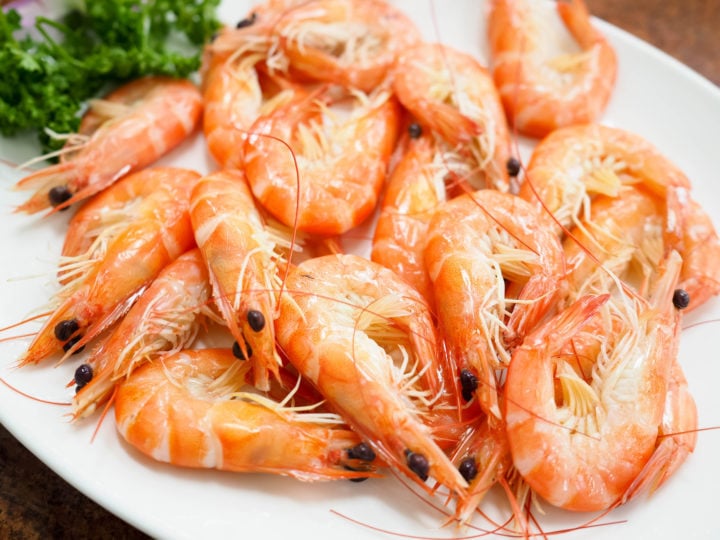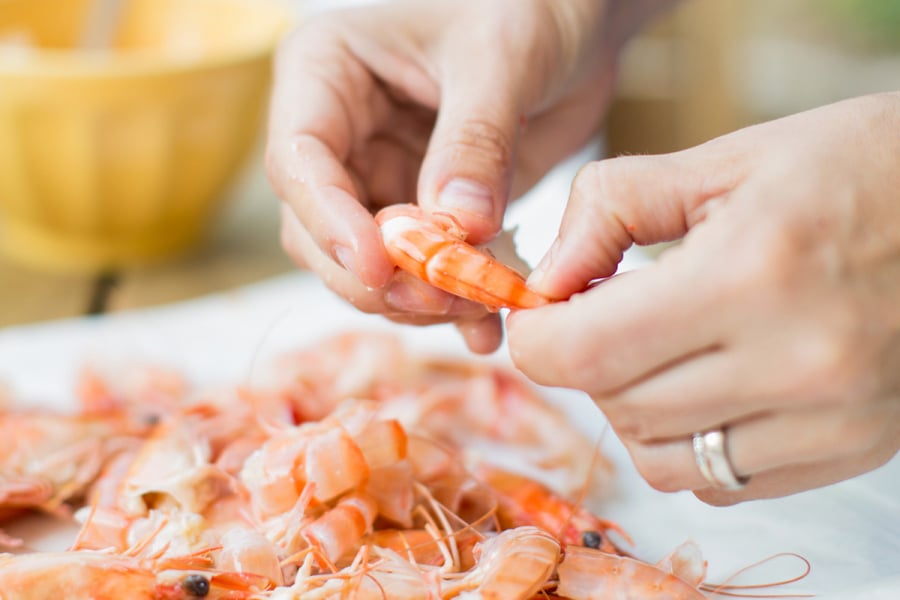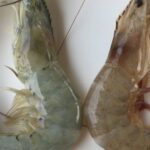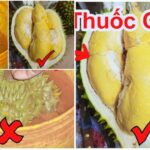Consuming Shrimp Without Proper Cleaning
Shrimp, being aquatic, can harbor bacteria or parasites if not handled correctly. Inadequate rinsing or failing to remove the shrimp’s black vein (digestive tract) before cooking is a common mistake. This vein contains waste and bacteria, potentially causing food poisoning, diarrhea, or intestinal infections.
To avoid this, thoroughly rinse shrimp under clean running water. Gently slit the back of the shrimp to remove the vein. Ensure complete cooking to eradicate bacteria and parasites.

Combining Shrimp with Incompatible Foods
Certain foods, when paired with shrimp, can trigger adverse reactions in the body. For instance, consuming shrimp with vitamin C-rich foods like oranges or lemons may produce toxic compounds due to the chemical reaction between the natural arsenic in shrimp and vitamin C, leading to potential poisoning. Additionally, pairing shrimp with beer or liquor can cause indigestion, bloating, and increased risk of gout due to the high purine levels in shrimp.
It is advisable to refrain from eating shrimp with vitamin C-rich fruits in the same meal. Curtail the combination of shrimp with alcoholic beverages, especially if you have a history of gout or digestive issues.

Consuming Shrimp Without Considering Health Status
Shrimp, being protein and cholesterol-rich, may not suit individuals with specific medical conditions. Those with seafood allergies, gout, or high cholesterol levels may face health risks when consuming excessive amounts of shrimp. Allergic reactions to shrimp can range from itching and hives to anaphylaxis, a life-threatening response. For individuals with gout, shrimp’s purines can elevate uric acid levels, triggering intense joint pain.
Conclusion: Shrimp offers nutritional benefits but requires proper handling and consumption. Common mistakes to avoid include inadequate cleaning, inappropriate food pairings, and consumption without regard to health status. Pay attention to preparation methods and your health condition to safely enjoy the benefits of shrimp.



































